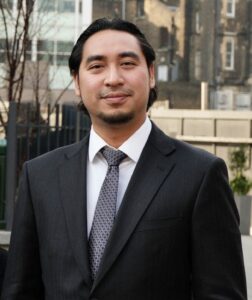Abstract
Malaysia has long taken pride in its political stability, steady leadership, and long-term vision for nation-building. Even through four changes of government since 2018, the five-yearly Malaysia Plan has remained a cornerstone of governance, and a key presentation of the country’s developmental trajectory and aspirations.
In this seminar, Wan Ahmad Fayhsal, Member of Parliament for Machang, will share his views on the 13th Malaysia Plan (RMK-13) and its implications. He will describe how the markets and the Malaysian public have reacted to it and examine specific elements of the Plan. He will also elaborate on his concerns over what he perceives as a lack of vision for a long-term development plan and his ideas on what it would take to restore both domestic and international confidence so that Malaysia can achieve its full potential.
About the Speaker
 Wan Ahmad Fayhsal Bin Wan Ahmad Kamal is a Malaysian politician currently serving as the Member of Parliament for Machang and a Supreme Council Member of the Malaysian United Indigenous Party (BERSATU). He had once served as the Youth Chief of BERSATU. He was Deputy Minister of Youth and Sports and Deputy Minister of National Unity from 2020 to 2022.
Wan Ahmad Fayhsal Bin Wan Ahmad Kamal is a Malaysian politician currently serving as the Member of Parliament for Machang and a Supreme Council Member of the Malaysian United Indigenous Party (BERSATU). He had once served as the Youth Chief of BERSATU. He was Deputy Minister of Youth and Sports and Deputy Minister of National Unity from 2020 to 2022.
His career began at PETRONAS as a Business and Strategic Planning Executive before he moved into a senior executive role at the Bumiputera Agenda Steering Unit (TERAJU). Here, he played a key role in the founding of the Bumiputera Education Steering Foundation (Yayasan Peneraju).
Wan Fayhsal’s academic credentials include a Bachelor of Chemical Engineering from Universiti Teknologi Petronas (UTP) and a Master of Arts in Geopolitics, Territory and Security from King’s College London, which he completed as a Yayasan Khazanah scholar. He also pursued further studies in Islamic theology and philosophy at the Raja Zarith Sofiah Centre for Advanced Studies on Islam, Science and Civilisation (RZS-CASIS).



 Add to Google calendar
Add to Google calendar
 Add to Outlook calendar
Add to Outlook calendar
